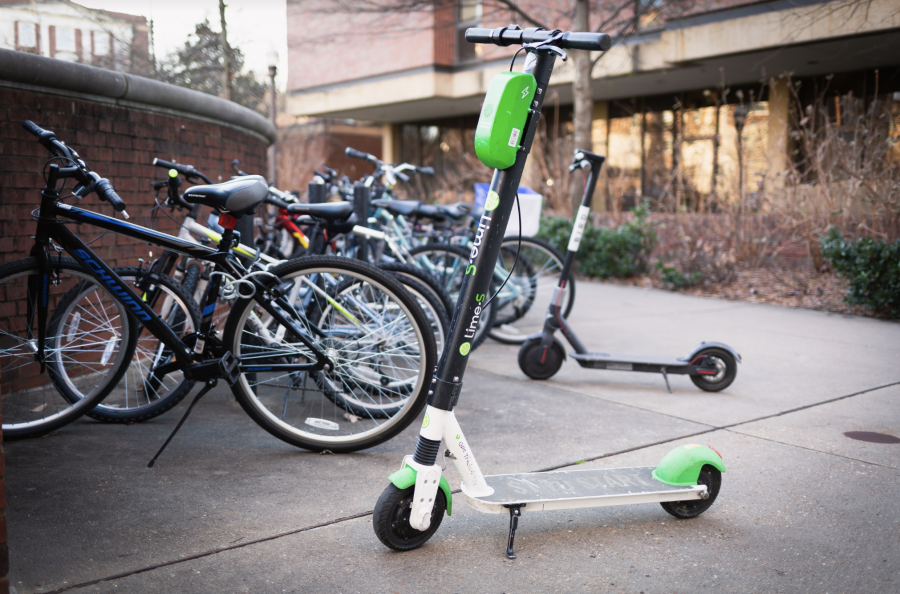The scooters are here to stay. The Metro Council approved a bill on July 17 that will allow three scooter companies to keep operating through a bidding process with a reduced fleet size and stricter oversight.
Metro’s decision was surprising given the recent backlash against scooters in Nashville and the Mayor’s firm position on an immediate ban. In an interview on CNN, Mayor Briley reflected on the first scooter-related death in the city and pointed out that the scooters are becoming “an imposition that we can no longer tolerate.” His statement was well echoed – earlier this month, Max Schulman voiced his support for the mayor, noting that “our local government must address public health issues and preserve our public spaces.”
Schulman’s claim that tragedy calls for immediate action is correct; however, Metro has made the right decision. Simply removing the scooters will not make Nashville safer or its streets cleaner; addressing regulatory myopia and the need for accessible transit will.
According to The Tennessean, the Nashville Fire Department responded to 43 emergency calls in April alone for scooter-related crashes; and the Vanderbilt University Medical Center treats one to two scooter-related injuries per day. Yet a Center for Disease Control study that tracked scooter hospitalizations in Austin, Texas found that electric scooter use results in only 20 injuries per 100,000 trips, and determined that many injuries could have been prevented if riders wore helmets, were educated before their first rides and were more careful around cars.
In fact, don’t let the uptick in recent scooter injuries mask the more ironic backdrop that cars are the most dangerous form of transit for Tennesseans. Ninety-five percent of traffic fatalities since the scooter pilot in May 2018 to date are caused by cars. A Tennessee State Department of Safety and Homeland Security report found that in Davidson County, which encompasses Nashville, there were 33,419 car crashes last year including 9,146 injuries and 78 fatalities. In the first three months of this year, there were 7,859 crashes including 2,145 injuries and 15 deaths.
Additionally, eliminating scooters would have spelled trouble for any attempt the city is making at curbing diesel emissions and improving public health. If scooter users become increasingly confined behind steering wheels, or – for those who don’t own a car – ride-hailing services, our streets will be filled with more cars and trap more toxic pollutants, creating thicker ground-level ozone that harms children, older adults and those with asthma and other lung diseases.
It’s a version of the trolley problem, the philosophy-class ethics conundrum made real by the scooter ban: should regulators permit the scooters to operate and deal with a handful of mostly preventable casualties each year, or should they seek an outright ban by way of a quick fix at the expense of clean air and long-term public wellbeing? The mindset behind Mayor Briley’s ultimatum is chilling: if eliminating scooters could immediately bring down injury numbers and placate concerned residents, who cares if this would give rise to more road-clogging, pedestrian-flattening vehicles that kill 40,000 Americans a year and seriously injure more than 4 million more, barring all those harmed by emissions? By allowing scooters to stay and instituting new safety mandates, the Metro officials are throwing a different – and perhaps wiser – light on the matter.
There is indisputable demand in Nashville for more diverse modes of transportation. A Walk Bike Nashville report found that since the introduction of scooters last May, over 1.8 million trips have been taken, with an average distance of over 1 mile. Many of those people are tourists, who would have otherwise rented a car or opted for Uber, Lyft or a taxi, rather than attempt to figure out Nashville’s confusing bus system while on vacation. Many more repeat users are commuters like myself trying to make it to class and work, construction workers traveling downtown to job sites and low-income residents using scooters to connect with transit. While Mayor Briley claims that Nashville is a “city built around a car,” with rapidly worsening traffic, skyrocketing parking prices and WeGo transit service cuts, both visitors and locals need affordable, accessible and sustainable car alternatives like scooters to move freely in the city.
Scooters are not perfect, but there is no question that Nashville must remain on the lookout for creative and reliable ways to integrate them into the city scenes. The council’s bill has brought promising solutions to the table: “slow zones” downtown and “no ride zones” on Metro greenways and in Metro parks will be created; there will be no scooter rides after 10 p.m. on weekdays and 11 p.m. on weekends and holidays, when riders are more likely to have been drinking (which was associated with Brady Gaulke’s fatal crash). With new rules like these, we may be able to make cars and scooters coexist. However, if the threat of a scooter ban comes with every accident moving forward, we will continue to make our streets more dangerous, polluted and less mobile.





